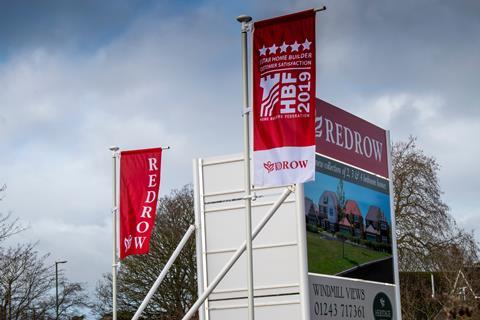Matthew Pratt is the first chief executive to speak out against threat to stop housebuilders trading
Michael Gove’s attempt to force housebuilders to pay £4bn of fire safety repair costs by threatening to stop firms trading is “unrealistic” and “inequitable”, according to the chief executive of Redrow.
Matthew Pratt today became the first listed housebuilder chief executive to speak out publicly against the housing secretary’s plan, under which a senior communities department official wrote to housebuilders last week urging them to sign up to a heads of terms financial agreement drawn up by the department.
The letter said Gove will seek to prevent housebuilders from trading if they didn’t sign up to the government’s plan.
The threat was made by Gove despite the government having already brought in a £2bn industry levy to pay for repairs, and despite the volume builders having already set aside a further £1bn to deal with remediating their own stock.
>> Can Gove really go after developers for £4bn of cladding costs?
>> Does Gove’s £4bn cladding levy mark the start of an anti-development era?
Redrow’s Pratt said he agreed with the government’s decision to protect leaseholders from repair costs, but that the current proposal didn’t appear fair or proportionate, and that Redrow wouldn’t be signing the draft agreement sent to housebuilders last week.

He said: “I don’t think anyone can sign a deal that says ‘you will give me anything I want’. Which basically [is saying that at] the end of the year ‘we’ll tell you how much it [the cost] is and you’ll sign up to say you’ll give us it.’
“Nobody can sign up to that, it’s unrealistic.”
Releasing half-year results today, Redrow said it had increased it provision for fire safety repairs on historic buildings from £10 to £36m, despite being largely a builder of low-rise detached homes.
Pratt said: “We want to work with the government to find solutions to this [fire safety crisis].
“We’re predominantly a builder of detached homes, and therefore paying the bills for some of these blocks that were built by people who were foreign investment [sic] […] and have now disappeared, seems inequitable to us that we do that.
“We want to talk with government and be supportive of them, but at this precise moment the industry’s been targeted quite strongly and severely by the government to pay for other things that were not of our making.”
Pratt said that he understood that less than 50% of buildings with fire safety issues were built by UK housebuilders – figures drawn up by the Home Builders Federation (HBF) – and that many of those were built on housebuilders’ behalf by main contractors.
According to figures provided by analyst Goodbody, just under 94% of the homes built by Redrow are houses rather than flats, the second highest proportion of the listed builders, behind Persimmon.

However, Pratt added that it was “incredibly early days” in terms of the industry’s negotiations with the government over the policy and that it wanted to work with government to find a solution. “We’ve got a lot more talking to do before we get to a conclusion,” he said.
The HBF has already strongly criticised the government’s threat to stop housebuilders trading, and is seeking professional advice to determine whether any such action would be legal.
The row over the fund comes after Michael Gove in January ditched his predecessor’s Robert Jenrick’s plan to force leaseholders in mid-rise buildings of between 11-18m in height to take out loans pay for repairs. He said housebuilders “who profited, and continue to profit, from the sale of unsafe buildings” should bear the estimated £4bn cost instead.
The HBF and other housebuilders have repeatedly backed the move to protect leaseholders from repair costs, but called on the government to ensure that the wider construction and development industry – not just housebuilders – bear the cost.
This morning listed housebuilder Gleeson said that “architects, specifiers, insurers, materials producers, suppliers and developers” all needed to pay a share of the costs.










1 Readers' comment